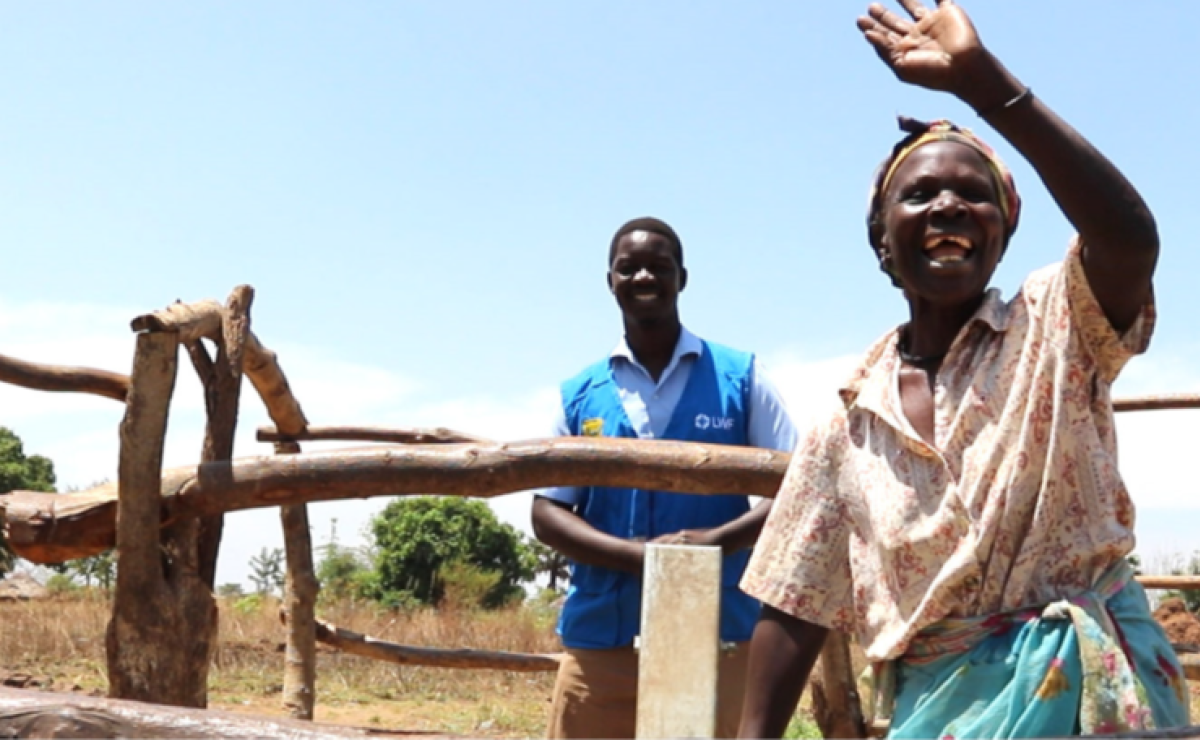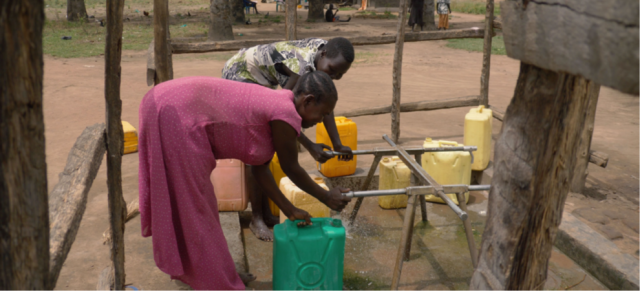Water supply interventions improve sanitation among vulnerable communities

Water woes are now a thing of the past in Labongo Odonyo central village, approximately 30 kilometres from the town of Northern Uganda's Kitgum district. Thanks to the LWF Uganda's extensive water supply interventions that have reached new, underserved areas.
Other than meeting the rising demand during the COVID-19 period, the interventions intend to contribute to the realization of sustainable development goal six of contributing to increased access and sustainable management of water and sanitation for rural communities.
40-year-old Mary Ayugi, a Labongo Odonyo central village resident in the district's Kitgum Matidi sub-county, says potable water needs are no longer a problem since LWF installed a hand pump borehole which provides clean and safe water in her village last year.
Ayugi says the borehole is a stone's throw away from her house, and "I can easily access the water any time I want." Before the borehole, Ayugi fetched water from a dirty stream two kilometres away from her home, a distance longer than the one kilometre recommended to access water according to the World Health Organisation
"Sometimes it [the stream] would dry, and we had to move to another village which is another kilometre further," she recalls, adding, "It was a huge inconvenience for cooking, drinking, and general hygiene maintenance."

In line with the organisation's global and country strategy, the interventions address poor sanitation and hygiene practices at household, community and institutional levels. Through community structures like the Village Health Teams (VHTs), LWF promotes sanitation and hygiene through door-to-door awareness creation campaigns, among others, that aim to eliminate unhealthy behaviours like open defecation. To facilitate this, we train masons to produce and distribute domed-shaped pit latrine slabs, one of the safest technologies for disposing of human waste. The slab covers a pit latrine with an air-tight cover that helps to contain the smell inside the pit while at the same time keeping away the flies.
Sustainability
The district water and health departments, in collaboration with LWF, conduct routine water quality tests along the water chain to prevent possible underground water contamination (faecal contamination) at the source and during the handling of the consumption. At the community level, the interventions build community end users' capacities by establishing water user committees to ensure proper functionality and maintenance.
Thus, with a reduced time spent and distance covered on collecting water by individuals from vulnerable communities like Ayugi while fetching water, LWF helps susceptible communities to realise their right to access safe, affordable and reliable drinking water and sanitation services.
-END-

